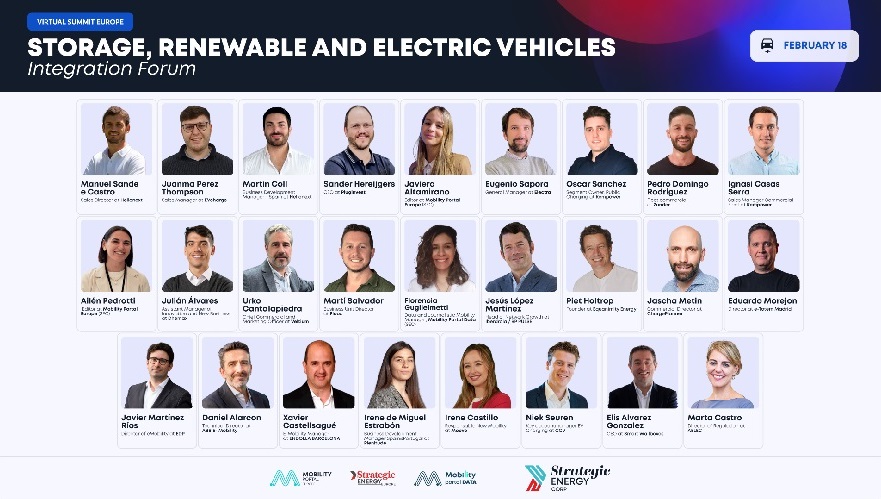On 18 February, Mobility Portal Europe hosted a virtual event that brought together top executives from leading companies to discuss the future of the sector. Below are the most noteworthy quotes from the “Voice of eMobility Leaders.”
On Tuesday, Mobility Portal Europe gathered industry leaders for the first day of the “Storage, Renewable, and Electric Vehicles Integration Forum,” known as the “Voice of eMobility Leaders.”
Key discussions centred on the future of fast charging, financing options, the development of electric heavy transport, strategies to boost eMobility in Southern Europe, and energy storage.
Here are some of the most notable quotes from the participants.
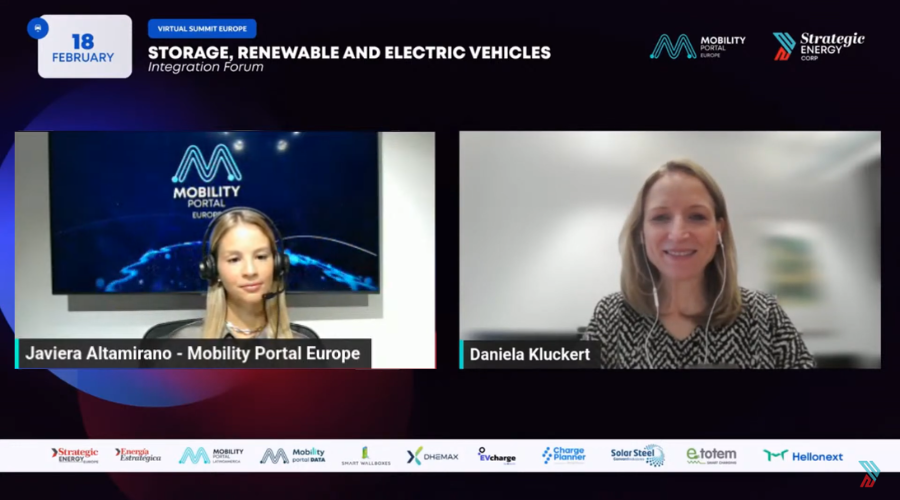
Daniela Kluckert, Member of the German Federal Parliament:
“An economy which is driven by state subsidies is a wrong approach. But as soon as a technology has gained a foothold on the market, it must establish itself, and electric mobility is capable of achieving this.”
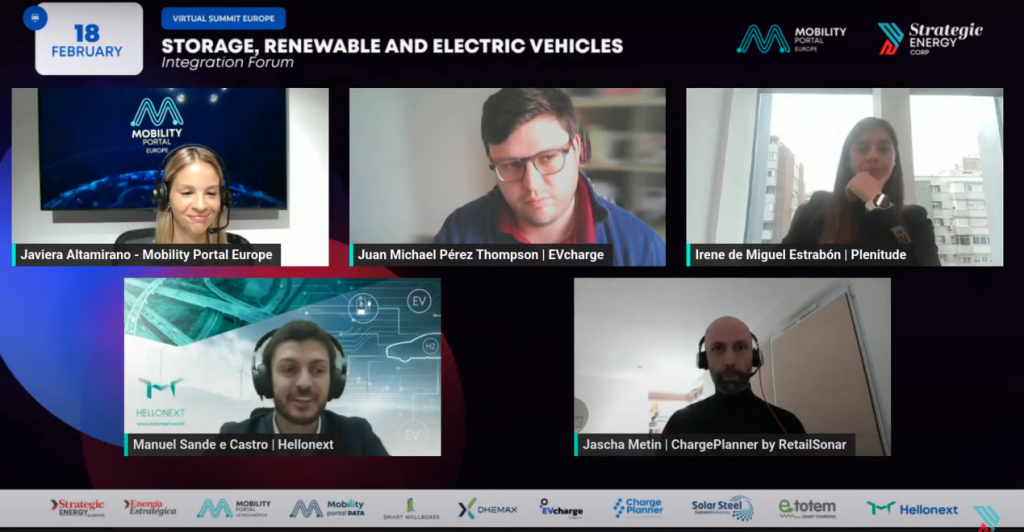
Manuel Sande e Castro, Sales Director at Hellonext:
“One of our top priorities is ensuring that all our products are future-proof. This means that if we launch a 150 kW charger now, it must be capable of being upgraded to 180 or 240 kW in the near future.”
Jascha Metin, Commercial Director at ChargePlanner:
“In April, our eTruck charging solution will also be available beyond the initial countries – in the Netherlands, Germany, and the United Kingdom (UK) – and by the end of June, also in Spain, Portugal, Italy, and Poland.“
Juan Michael Perez Thompson, Sales Manager at EV charge by Etecnic:
“At EV Charge, we enable the collection and analysis of information. Having access to all this data makes it possible to create a strategic plan, not just for the next year, but for the next ten.”
Irene de Miguel Estrabón, Business Development Manager Spain&Portugal at Plenitude On the Road:
“Our approach is to ensure that those without the option to charge at home can confidently adopt an electric vehicle, knowing they have access to a reliable charging infrastructure. To achieve this, we continue to expand our fast and ultra-fast charging network in strategic locations.”
Niek Seuren, International Partner Manager at CCV:
“UK regulations require all chargers over 8 kW/hour to be equipped with a payment terminal, making it an attractive market for us. We are also focusing on the Nordic countries because, although they are well ahead in eMobility, the infrastructure is not always equipped with these solutions.”
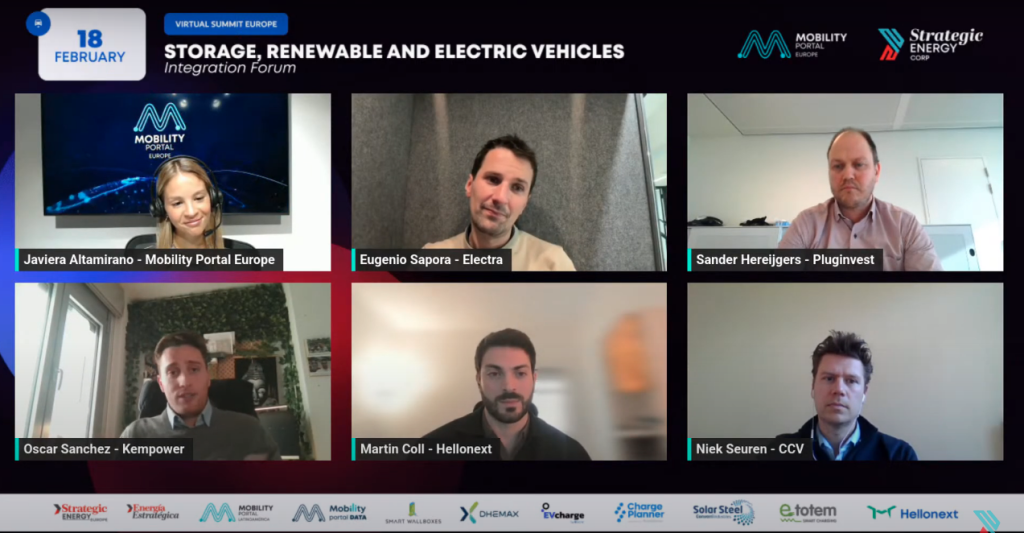
Eugenio Sapora, General Manager at Electra:
“This year, our goal is to double our network across Europe, which means around 800 charging stations. We would also like to expand into new countries, such as Spain and Luxembourg.”
Oscar Sánchez, Segment Owner, Public Charging at Kempower:
“We have launched our cooperation with Polarium to enhance integration with battery systems and provide energy services to our customers. Additionally, we are focusing on expanding into the truck charging sector, where we have been working hard to make significant progress.”
Sander Hereijgers, CEO at Pluginvest:
“We often encounter permit issues that can take a long time to resolve. The government can play a key role in providing clear guidelines and incentives for further deployment.”
Martin Coll, Business Development Manager Spain at Hellonext:
“Governments should support manufacturers through European incentives, streamline permitting processes, and implement co-financing programmes to accelerate network deployment, particularly in less profitable or rural areas.”
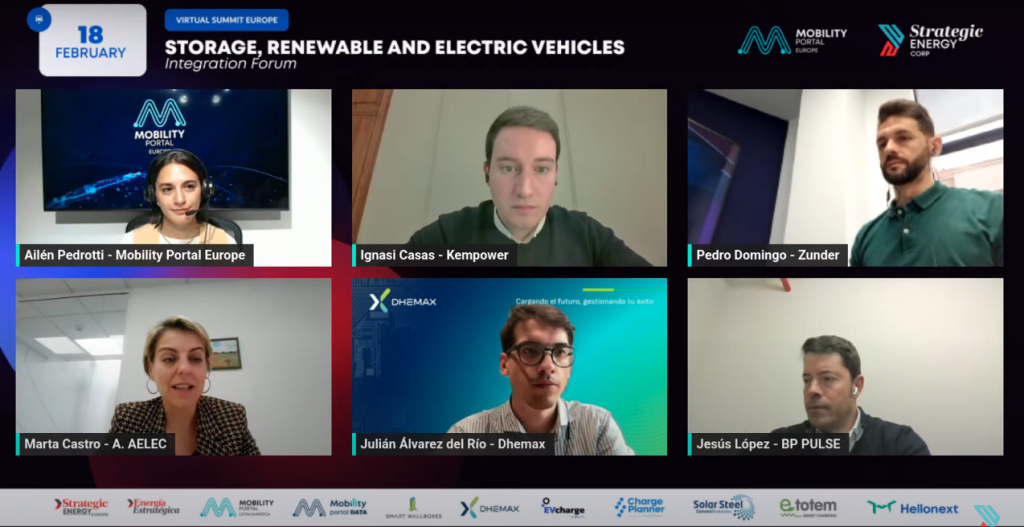
Jesús López Martínez, Head of Network Growth at Iberdrola / bp pulse:
“Why is MCS so important? Because it will introduce versatility to electric trucks, which they currently lack, and enable all the use cases that logistics operators require today.”
Pedro Domingo Rodríguez, Fleet Commercial at Zunder:
“CPOs are competitors, but not as fiercely as in more developed markets. The reality here is that we now need everyone to be in a position to invest and continue expanding the charging network.”
Julian Álvarez, development assistant manager at Dhemax:
“When we talk about electric trucks, it is essential to develop intelligence in the charging process to keep the TCO as low as possible.”
Marta Castro, Director of Regulation at the Association of Electricity Companies (aelēc):
“Grid flexibility will be the key element in enabling charge point operators. We must ensure that this does not become a bottleneck in this transition.”
Ignasi Casas Serra, Sales Manager Commercial Fleet at Kempower:
“Logistics centres are locations we must not overlook, as they will be among the key players in the transition to electromobility.”
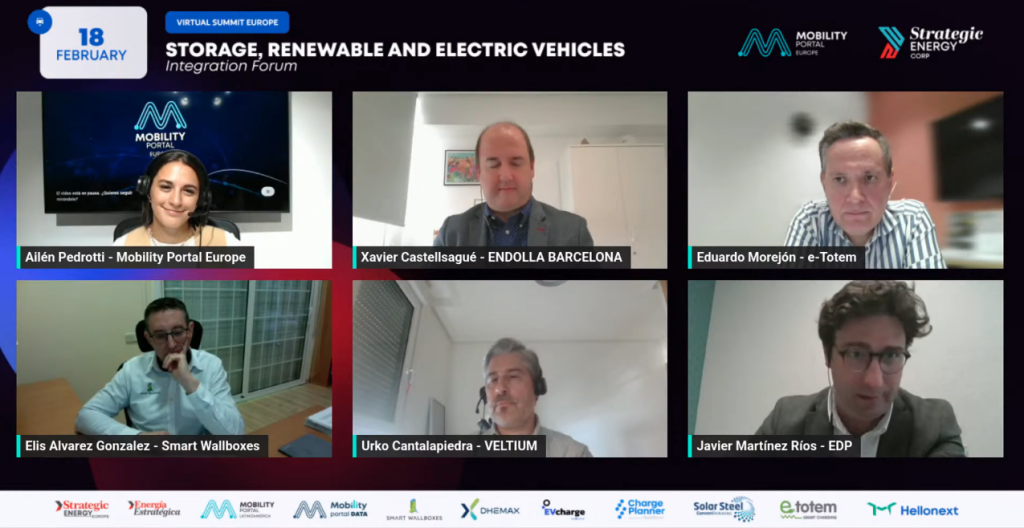
Eduardo Morejón, Director at e-Totem Madrid:
“Urban charging is at a very low level in Spain. We should be able to bring this model closer to users through ease of access and interoperability.”
Elis Alvarez Gonzalez, CEO at Smart Wallboxes:
“It should be prohibited for mobile apps to offer a lower kilowatt-hour charging cost than when paying via a payment terminal. This needs to be legislated in some way.”
Urko Cantalapiedra, Chief Commercial and Marketing Officer at Veltium:
“I believe we made a mistake by not first encouraging the private sector to transition to electric vehicles. Typically, they should set the example, and then users would follow.”
Xavier Castellsagué, Head of the Endolla Barcelona Unit:
“Endolla Barcelona currently has 1,000 charging points, and the concept of capillarity has been key to this. We have focused on a mix of public street chargers and hubs, as there is no single ideal model.”
Javier Martínez Ríos, Director of eMobility at EDP:
“CPOs have been required to provide a list of our charging points to MITECO for some time now. Perhaps mandatory interoperability is not necessary; instead, regulators should publish the information they already have.”
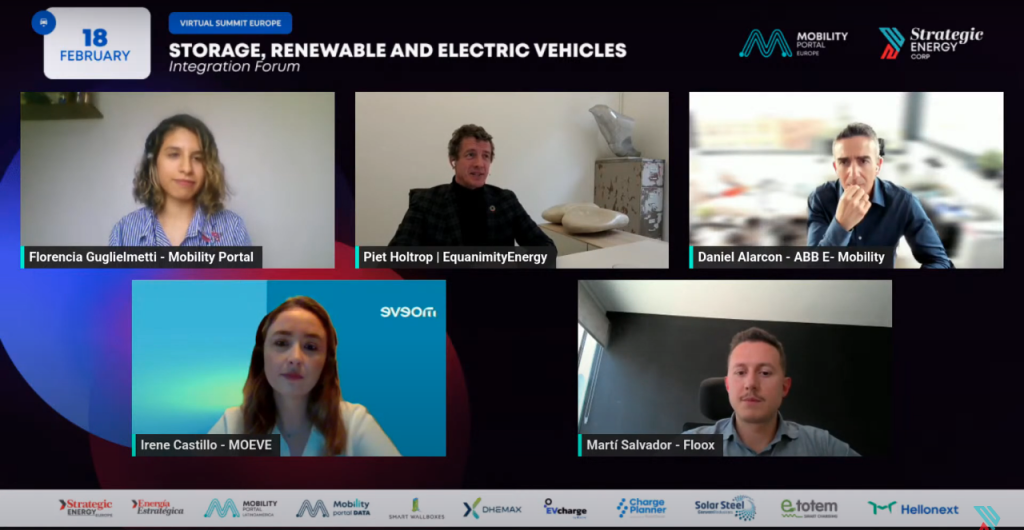
Martí Salvador, Business Unit Director at Floox:
“The government must provide clear direction in the transition. It cannot keep changing course or continuously altering the Plan MOVES. All of this creates a great deal of confusion.”
Piet Holtrop, Founder at Equanimity Energy:
“For Spain, we are already preparing to start building five new charging hubs, and we expect to have at least two completed.”
Irene Castillo, Responsible for New Mobility at MOEVE:
“We have managed to guarantee up to six consecutive ultra-fast charges with our chargers linked to storage, so the implementation experience has been very positive.”
Daniel Alarcón, Technical Director at ABB E-Mobility:
“Storage is essential in the design of charging hubs, but technological advancements are needed, as electrical efficiency is currently low.”





